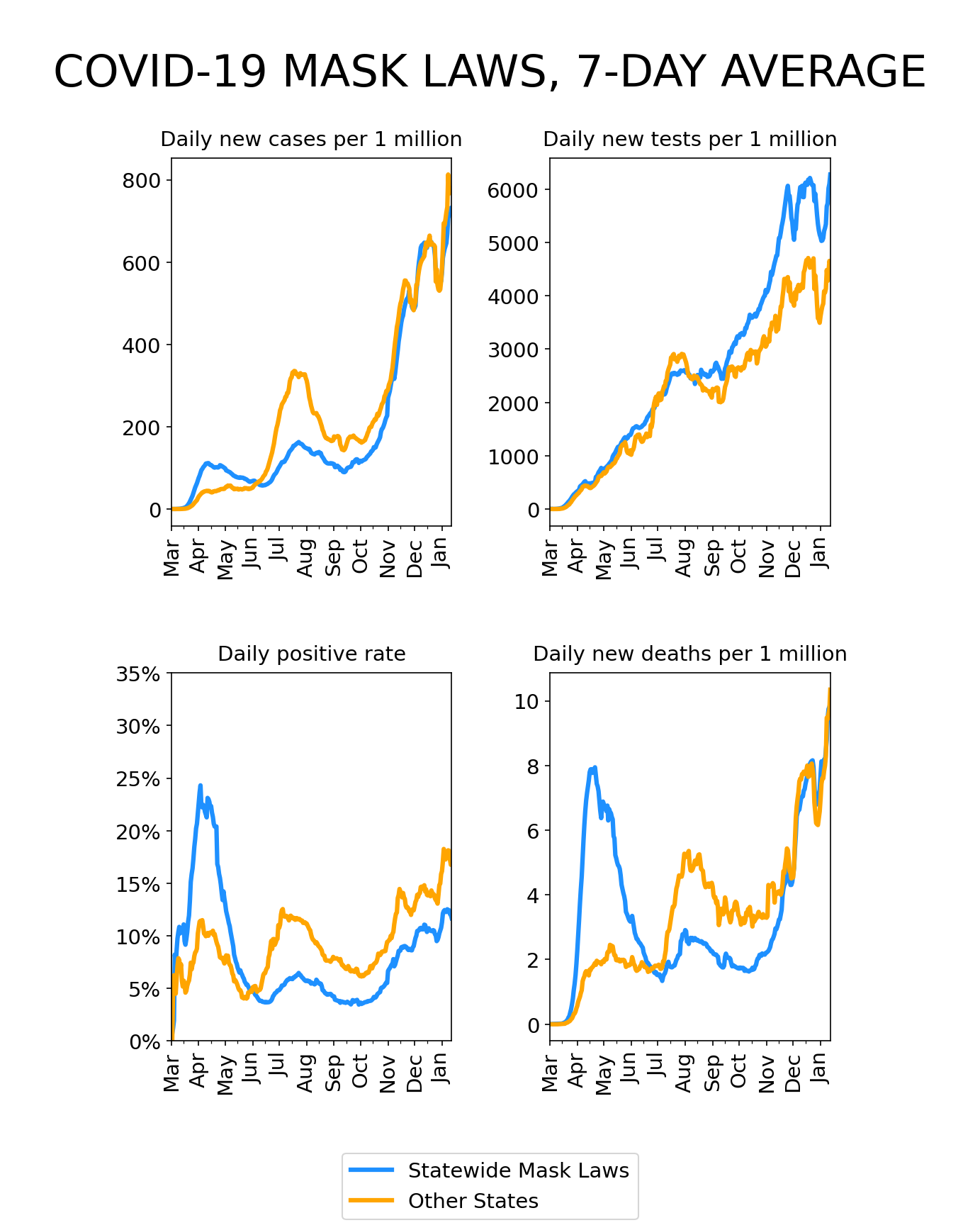Do Face Masks Help?
THE SHORT ANSWER: ALMOST CERTAINLY.
We wanted to see if there is correlation between confirmed Covid-19 cases and mask laws within the US. The results are below.
STATES WITH STATEWIDE MASK LAWS*:
AL, AR, CA, CO, CT, DC, DE, HI, IL, IN, KY, LA, MA, MT, MD, ME, MI, MN, NC, NJ, NM, NV, NY, OH, OR, PA, RI, TX, VA, VT, WA, WI, WV
* Adopted before August 2020
STATES WITHOUT STATEWIDE MASK LAWS:
AZ, FL, GA, IA, ID, KS, MO, MS, ND, NE, NH, OK, SC, SD, TN, UT, WY
Data sources:
We see a large correlation between daily cases and the lack of mask laws. Taken together with other pieces of evidence, it becomes clear that face masks are certainly slowing the spread of Covid-19, therefore saving lives.
~95% of the world lives in countries where the government and leading disease experts both agree that masks are effective at reducing the spread of COVID-19.
Source: The Philadelphia Inquirer
A CASE STUDY IN MASK EFFECTIVENESS:
Source: CDC
SHOULD I WEAR A MASK?
Absolutely. Wearing a mask reduces the number of droplets that are ejected during breathing and speech, and thus decreases the spread of the disease. Click here for more details.
Patients without symptoms pose a risk of infecting others, so it’s not enough to wait until you have symptoms to wear a mask.
SHOULD I WEAR A PARTICULAR KIND OF MASK?
Some masks are certainly better than others, but even cloth masks have shown to reduce the number of microorganisms that someone releases into the air. Below is a table of filtration amounts:
CAN WEARING A MASK BE HARMFUL?
There have been three main pieces of misinformation about how masks might be harmful:
Reduced oxygen intake.
Mishandling of the mask may cause one to accidentally infect themselves.
Reduced exposure to pathogens and allergens which may in turn decrease the effectiveness of one’s immune system.
A demonstration of evidence against point 1 can be seen here and point 2 is refuted here, and point 3 has no scientific backing.
If one is having trouble breathing in a mask, we recommend consulting with a medical professional. Particularly for those with respiratory issues, we highly recommend minimizing the risk of contracting COVID-19 by wearing a mask around others. The American Lung Association has compiled a list of steps you can take to get used to wearing a mask.
DO I NEED TO SOCIALLY DISTANCE IF I WEAR A MASK?
Yes. While masks reduce the likelihood of transmission, they aren’t 100% effective. Increasing the distance between yourself and others further reduces the likelihood of transmission.
DOES MY CHILD NEED TO WEAR A MASK?
Yes. Face masks are not just for adults, and it is known that children can both become infected and spread the disease to others.
Take the time to teach your child that, along with frequent hand washing and physical distancing, wearing a face mask correctly and consistently protects our communities and the people around us.






